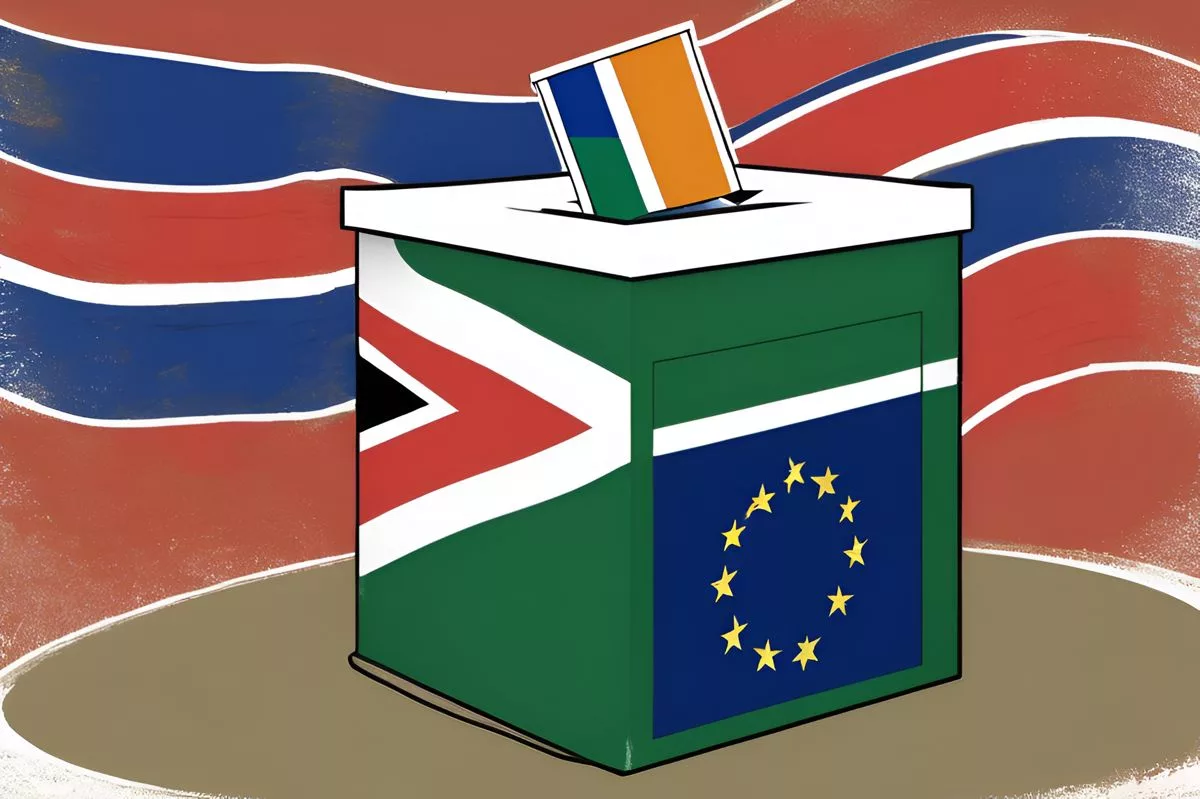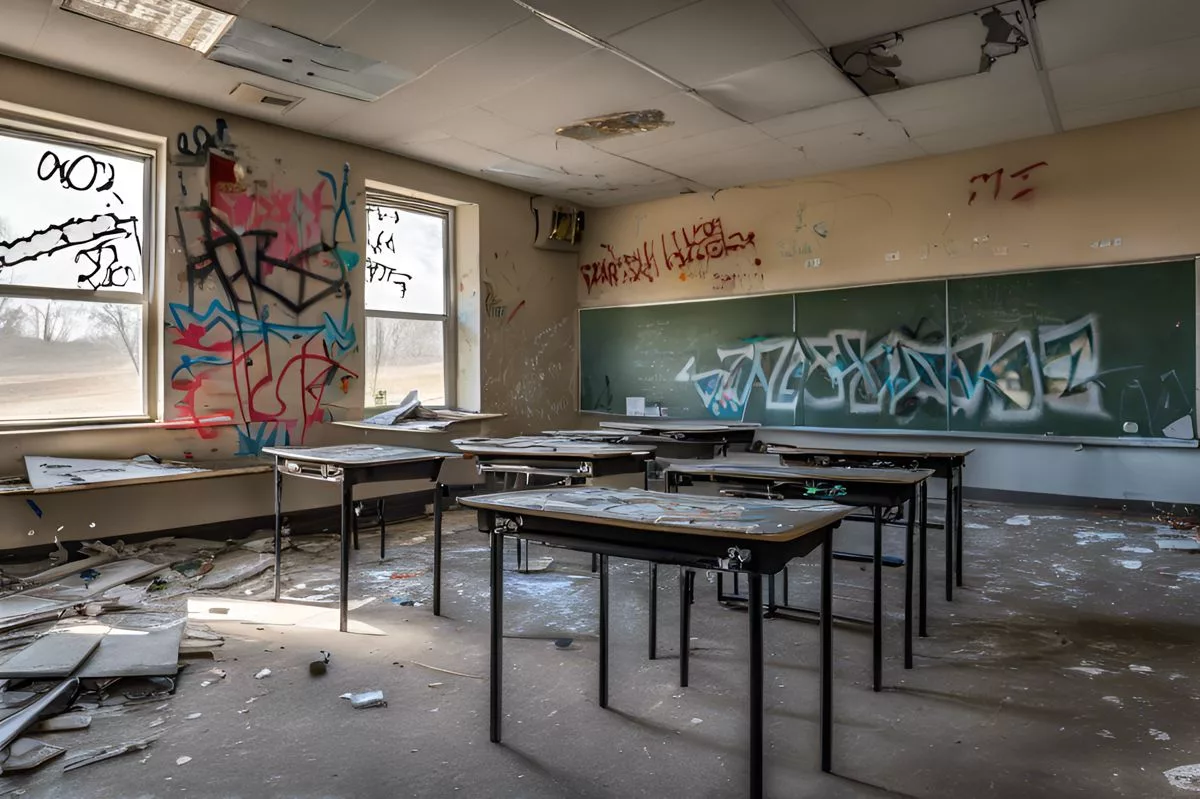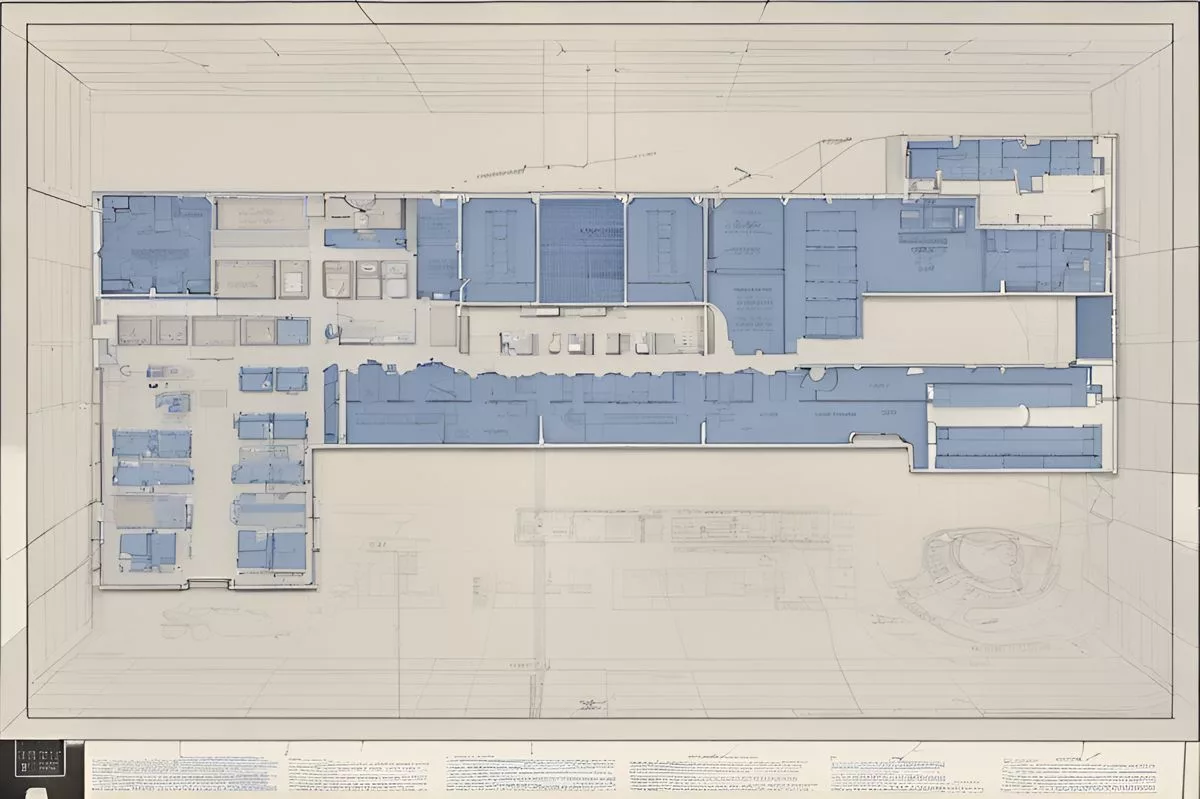President Cyril Ramaphosa delivered a captivating pre-election homily in 2024, reflecting on the achievements and challenges of the sixth democratic administration and the path ahead. He praised the Independent Electoral Commission for their meticulous preparations for the election and acknowledged the indispensable role of law enforcement agencies and security services in ensuring a peaceful electoral process. The President highlighted the considerable progress made towards restoring the economy, battling against gender-based violence, and increasing South Africa’s global influence. He urged citizens to renew their commitment to democracy, unite, and work towards creating a more prosperous South Africa.
Embarking on a New Era: President Cyril Ramaphosa’s Pre-Election Homily 2024. President Cyril Ramaphosa, a beacon of resolve and unity, addressed the nation, casting a luminous trail on the impressive journey of the sixth democratic administration and the path that lies ahead.
Democracy’s Onset and Preparations for the Election
At the threshold of the 2024 electoral event, President Cyril Ramaphosa, a beacon of resolve and unity, addressed the nation, casting a luminous trail on the impressive journey of the sixth democratic administration and the path that lies ahead. His speech was a captivating blend of reflection and expectation, underscored by his unwavering faith in South Africa’s democratic ethos.
As the dawn of the election day advanced, President Ramaphosa acknowledged the nation’s readiness to exercise its democratic prerogative to choose its leaders. The country was gearing up for its seventh state and provincial political election—an event that would reaffirm the fundamental principle stated in the Freedom Charter: the legitimacy of any government must emanate from the people’s will.
Address to the Independent Electoral Commission (IEC) and Security Services
In his address, President Ramaphosa praised the Independent Electoral Commission (IEC) for their meticulous preparations for the election, manifested in the successful voter registration weekends, the enrollment of political parties and candidates, and the strict adherence to electoral laws. More so, the IEC’s unwavering integrity, coupled with the vigilance of party representatives and independent observers, created an environment of trust and transparency.
The President also recognized the indispensable role of law enforcement agencies and security services in ensuring the peaceful conduct of the elections. He celebrated the ambiance of tranquil campaigning and denounced any attempts that might jeopardize the electoral process.
Recollection of the Administration’s Achievements and Challenges
In a reflective tone, President Ramaphosa narrated the tale of a nation that had braved storms and stood fortified. When his administration ascended to power in 2019, South Africa was grappling with the repercussions of corruption, state capture, and sluggish economic growth. However, through a collective resolve, the nation rallied to dismantle criminal networks, reconstruct public institutions, and recover stolen assets. The enactment of the legislation to permanently establish the NPA’s Investigating Directorate against Corruption marked a significant leap in the crusade against corruption.
Confronting the COVID-19 pandemic was an unparalleled challenge that gauged the nation’s fortitude. Despite the devastating losses, South Africa’s response was commendable. The nation consolidated its efforts to protect its citizens, introducing extraordinary measures and socio-economic support packages. The results were evident, with over 39 million COVID-19 vaccine doses administered.
South Africa showcased its tenacity during the July 2021 insurrection and the disastrous flooding in April 2022. In both instances, South Africans banded together to defend their democracy and extend help to affected individuals.
Economic Recovery and Global Influence
The President’s address also highlighted the considerable progress made towards restoring the economy to its pre-pandemic state and recouping lost jobs. Through public-private collaborations, the country marshaled resources, implemented strategic plans across various sectors, and supported black industrialists. The efforts in infrastructure development, with projects worth over R230 billion already in construction, mirrored the nation’s revived economic dynamism.
The battle against gender-based violence was accentuated as a significant area of focus for the administration, with the formulation of the National Strategic Plan and the creation of the National Council on GBV and Femicide. Education reforms were also spearheaded, leading to the highest matric pass rate in the country’s history and increased financial support for students.
Internationally, South Africa established itself as a formidable advocate for developing nations and the marginalized. Through diplomatic initiatives and the deployment of SANDF personnel as peacekeepers, the country played a pivotal role in striving towards pacifying the African continent.
In his concluding remarks, President Ramaphosa voiced his confidence in the solidarity and resilience of the South African people. The previous five years had been a period of reconstruction and recovery, and as the nation braced for the seventh administration, the President urged citizens to renew their commitment to democracy, unite, and strive towards creating a more prosperous South Africa.
1. What was President Cyril Ramaphosa’s pre-election homily about?
President Cyril Ramaphosa’s pre-election homily in 2024 reflected on the achievements and challenges of the sixth democratic administration and the path ahead. He praised the Independent Electoral Commission for their meticulous preparations for the election and acknowledged the indispensable role of law enforcement agencies and security services in ensuring a peaceful electoral process. The President highlighted the considerable progress made towards restoring the economy, battling against gender-based violence, and increasing South Africa’s global influence.
2. What did President Ramaphosa acknowledge about the nation’s readiness for the election day?
As the dawn of the election day advanced, President Ramaphosa acknowledged the nation’s readiness to exercise its democratic prerogative to choose its leaders. The country was gearing up for its seventh state and provincial political election—an event that would reaffirm the fundamental principle stated in the Freedom Charter: the legitimacy of any government must emanate from the people’s will.
3. What did President Ramaphosa say about the Independent Electoral Commission (IEC)?
In his address, President Ramaphosa praised the Independent Electoral Commission (IEC) for their meticulous preparations for the election, manifested in the successful voter registration weekends, the enrollment of political parties and candidates, and the strict adherence to electoral laws. More so, the IEC’s unwavering integrity, coupled with the vigilance of party representatives and independent observers, created an environment of trust and transparency.
4. What were some of the achievements and challenges of the sixth democratic administration according to President Ramaphosa?
President Ramaphosa narrated the tale of a nation that had braved storms and stood fortified. When his administration ascended to power in 2019, South Africa was grappling with the repercussions of corruption, state capture, and sluggish economic growth. However, through a collective resolve, the nation rallied to dismantle criminal networks, reconstruct public institutions, and recover stolen assets. The enactment of the legislation to permanently establish the NPA’s Investigating Directorate against Corruption marked a significant leap in the crusade against corruption. Confronting the COVID-19 pandemic was an unparalleled challenge that gauged the nation’s fortitude. Despite the devastating losses, South Africa’s response was commendable.
5. What were some of the focus areas for the administration?
The battle against gender-based violence was accentuated as a significant area of focus for the administration, with the formulation of the National Strategic Plan and the creation of the National Council on GBV and Femicide. Education reforms were also spearheaded, leading to the highest matric pass rate in the country’s history and increased financial support for students.
6. What did President Ramaphosa say about South Africa’s global influence?
Internationally, South Africa established itself as a formidable advocate for developing nations and the marginalized. Through diplomatic initiatives and the deployment of SANDF personnel as peacekeepers, the country played a pivotal role in striving towards pacifying the African continent.










